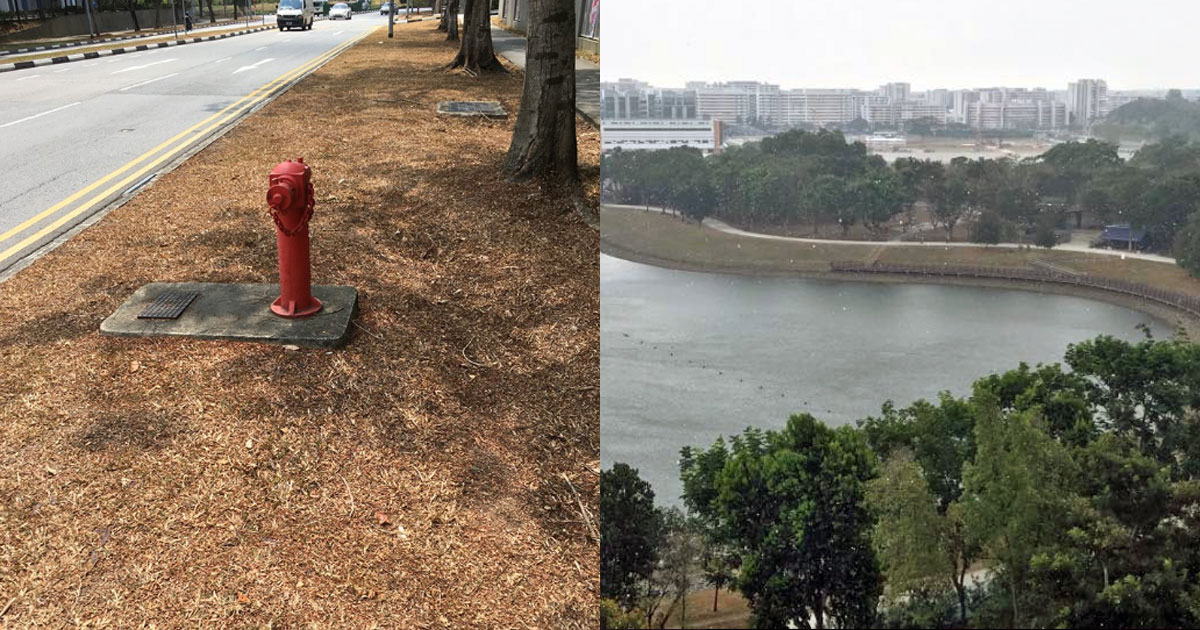Grass is dying:
Reservoir is drying:
And the lake is emptying:
What is going on?
Singapore is experiencing its first dry spell since 2014, according to the Meteorological Service Singapore (MSS) on Aug. 16.
A dry spell is a period of at least 15 consecutive days with daily total rainfall of less than 1mm, as defined as MSS.
Rainfall for August 2019 is expected to be "significantly below normal".
About 90 percent of all rainfall stations island-wide recorded daily rainfall of below 0.2mm.
When was the last dry spell?
The last recorded dry spell lasted 27 days, from Feb. 17 to March 15, 2014.
Singapore's latest dry spell in 2019 started on July 31.
What can be done about falling reservoir water levels?
NEWater and desalinated water can be pumped into the reservoirs.
In February 2014 and January 2015, national water agency PUB pumped between 20 million to 30 million gallons per day (mgd) of NEWater into reservoirs to replenish the water.
NEWater is reclaimed water produced from treated used water that is further purified to an ultra high grade.
Will rains come back in August 2019?
A respite is expected towards the last week of August.
MSS is forecasting more rain to fall.
What is causing the dry spell in 2019
According to MSS, the dry spell was due to an intrusion of dry air from the Southern Hemisphere.
This was compounded by suppressed rain clouds due to cooler sea surface temperatures over the tropical eastern Indian Ocean.
These conditions made for a "very warm" first half of August 2019.
Daily maximum temperatures ranged between 31.9°C and 34.5°C.
The highest temperature of 34.5°C was recorded at Marina Barrage on Aug. 13.
Nights experienced daily minimum temperatures of above 26°C over most parts of Singapore, with a few nights registering around 28°C in the southern and eastern coastal areas of Singapore.
But the rains should fall again in the last week of August 2019.
Top photos via Neil Humphreys & Conrad Alvin Lim
If you like what you read, follow us on Facebook, Instagram, Twitter and Telegram to get the latest updates.
